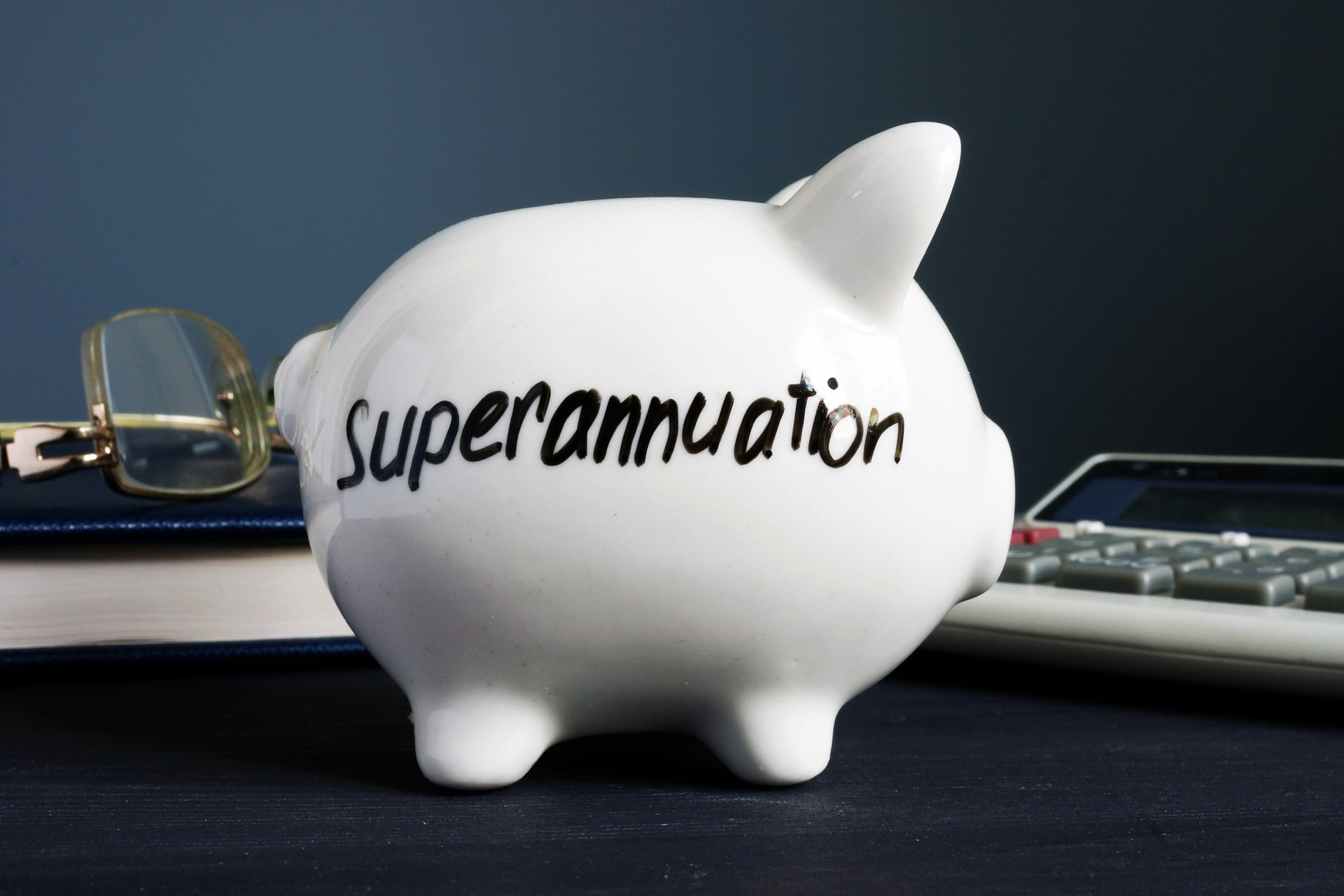Introduction
G’day, Let’s talk about everyone’s favourite topic: taxes! Now, I know what you’re thinking: taxes are about as exciting as watching paint dry!” But fear not, because I’m not here to bore you to death but rather give you some great tips to help you save a few bob and keep the taxman scratching his head.
They say there is nothing more certain than death and taxes. And in this country, we get our fair share of taxes. We are a heavily taxed country – one of the highest in the world infact.
Instead of offering incentive and reward for working harder here, this government takes up to half of your income. That means potentially every second day when you lean over and tap the clock radio you are potential working for the government. You might think well that doesn’t affect me, I don’t earn $180,000. Regardless the next band down are not much better (37.5%) - every 3rd day is for the government. Add this to all the other hidden taxes we pay in GST, Payroll tax, Fringe Benefit Tax, Capital Gain, land tax, fuel tax, road taxes etc etc and no wonder we are feeling the pinch.
Are you get the picture? If you don’t get a little savvy on how to minismise your taxes in Australia, you are fighting a tax system and possibly you will never truly prosper financially. And let me tell you they don’t use it wisely enough for you to be tipping the tax man.
So, what to do….
The first and probably the most important thing is to surround yourself with a professional team. Let me ask you, is your current Accountant proactive when it comes to tax planning before June or are they a little bit of a dinosaur in this space?
Getting your accountant to prepare your tax planning after June, is like driving down the road looking in the rearview mirror. It's all a bit too late to do any proper tax planning at that stage.
Unfortunately we see this all too often, the accountant so busy concentrating on compliance deadlines, that they have little time to provide proactive tax planning prior to June. The business owner has no choice but to simply accept the fate of a large tax bill after June.
So proactive tax planning is the key.
Whilst the powers to be have made many inroads to how we can reduce our taxes, there are still many avenues that you can use to legitimately minimise your taxes.
Key Areas To Save Tax
Let’s look at (5) key areas that you can easily minimise the amount of TAXES you pay.
1. (T) Trading Structure
Your Business Trading Structure
Use the right business structure is a crucial part of asset protection and tax planning.
A company for example offers protection against creditors and predators as well as allowing you to pay a flat tax rate of 25% (instead of 49% in your own personal name).
Whereas a partnership and trust offer advantages of income splitting to obtain a lower tax rate by distributing income to family members.
Whilst limited liability protection can be organised for a trust (with the introduction of a corporate trustee) this is not an advantage of a partnership and in this litigious society, we very rarely recommend partnerships anymore.
Having the appropriate structure is so crucial to your success and will ultimately determine the level of tax you will pay.
2. (A) Accountant
Keep Accurate Tax and Financial Records
Without a proper record keeping system that accurately records invoices and or receipts, you are likely to lose a great deal of you hard earn dollars (that should stay in your pocket) to the ATO. So many Aussies miss deductions they can legally claim because of a lack of sound record keeping.
We recommend Xero as a fantastic all in one state of the art business software, where you can easily upload and retrieve invoices to the cloud for future reference, which will be an important reference in the event of an ATO review. No more backs ups and overflowing filing cabinets and best of all, you’ll be able to claim your deductions and ultimately pay less in taxes.
Tax Planning
As mentioned, before it is so very important that you take a proactive approach to tax planning and that your account is on board providing you direction in this area. Without doubt, this is the biggest area of saving for you moving forward.
A professional has inside knowledge and industry expertise on taxes and can legitimately save you a lot of money. However, if your Accountant is a bit of dinosaur maybe it time you move them on. You want NO surprises when it comes down to the taxes you have to pay.
Use Salary Sacrificing
You Accountant should also help you understand the area of “fringe benefits”.
As an employee (of your own company), you can decide to pay some expenses out of you pre-tax earnings.
This works better for concessional expenses that an employee could ordinarily claim (such as superannuation, insurances computer or work-related vehicle).
For example, if you want to increase your refund this year, you could consider salary packaging your income protection insurance and laptop.
These benefits are also referred to as “fringe benefits,” and by paying them out of your pre-tax earnings you could save thousands of dollars in taxes every year.
3. (X) Expenses Strategy

Claim all tax deductions
If you spend any money on anything that is remotely related to earning income, you’ll want to claim it. Be sure you declare all deductions possible to pay less tax in Australia.
If you’re unsure whether or not you can claim a specific item as a work-related tax deduction, ask your Accountant.
Even things that may seem small and insignificant can add up to huge savings at the end of the financial year.
Write off bad debts
The ATO allows you to review your debtors Receivable list to determine if any are likely bad debts and need to be written off.
Obsolete Stock
You also have the ability of reviewing your stock to realise any obsolete items. The ATO allows you to value your stock down to “cost” or Net Realisable Value (NRV). This means that your slow-moving stock that you must sell at below cost can be written down to the NRV, which may substantially reduce your profit and therefore tax.
Pay all employee super by the deadline
Paying you superannuation for employees prior to 30 June (so it clears with the superannuation House) will allow you to claim super in the financial it is meant for (otherwise it will spill over o next year). It makes sense to pay this early to maximise your deductible claims.
The same goes for any bonuses or allowances for staff, get them paid and claim the deduction in the financial year you intend them to be claimed.
Donations
Sometimes it’s just nice doing “Good Business” isn’t it.
If your feeling charitable, it’s good to know your donations help you pay less tax. Every donation you make to a registered charity greater than two dollars is considered tax-deductible and the amount of the monetary gift is reduced from your total taxable income, meaning you’ll get back a percentage of the donation.
Prepayment of expenses
If you pay for some income-related expenses in advance, it can reduce your taxable income by moving your deductions forward to the next financial year. This will give you a higher tax refund. All prepaid expenses need to be less than a thousand dollars or meet the 12-month rule for prepaid expenses. The 12-month rule lets you claim a deduction as a prepaid expense as long as the service doesn’t exceed twelve months and stops in the next financial year.
Capital write off of expenses
We have had a dream run being able to claim unlimited capital expenditure prior to June to claim an immediate capital write off deduction (normal written off over 5 odd years). Unfortunately, this has now been reduced to individual items under $25,000. With some creative thinking there is still scope for some good claims and tax saving here.
Account for asset depreciation
Likewise in some instances there is scope to write off asset depreciation pooled to offer some tax relief early. Again, planning is key here.
4. (E) Your Earning Income
Deferring of income
Learn how to reduce tax with this neat little trick. You can defer receiving income until June 30, which will help you avoid paying taxes in the current financial year. We have saved clients Millions in tax saving by kicking the can down the road, where trading or tax rates have reduced.
Delay income collection
Also, as an extension of this if you are on a cash basis you can simply delay your collection of funds.
Appropriate tax planning in these areas code mean you drop a tax bracket which could result in thousands of dollars in savings.
Minimise Capital Gains and Minimise Taxes
Any significant assets sold in a given financial year, such as shares, or property, are subject to a capital gains tax. If the investment has been held for at least one year, you’ll be charged a 50 percent capital gains tax on top of your marginal tax rate. Capital gains taxes have to be paid in the year they are realised. However, losses can be carried forward, but not back. Taxes payable within the financial year can also be decreased if you prepay deductible interest.
When it comes to taxes and property, another tax exemption from Capital Gains Tax is if your property is your principal place of residence. There are also substantial exemptions and reductions in Capital Gains Tax properties used for business purposes.
Minimise your Taxes with a Mortgage Offset Account
Another good way to reduce the income from interest (If you have a home loan), is to organise a mortgage offset account so to offset your non-deductible interest on the home loan with interest taxable earnings of money in a deposit. Also, instead of paying interest on the entire amount of the home loan, you are only charged interest on the loan, minus the money in the savings account.
5. (S) Your Superannuation and Investments

Increase superannuation contributions
Concessional super contributions are taxed at a rate of 15 percent once they enter a super fund. This is different than if they were taxed at a marginal rate, which is sometimes as high as 49 percent. Self-employed taxpayers can make contributions to their superannuation and can claim a full tax deduction.
Superannuation offers a great vehicle for accumulating wealth at Zero Tax rate (yes you heard right build wealth and pay No tax – it doesn’t get better than that). Normally Superannuation pays 10% on any capital gain on property or shares. However, in these are sold in retirement after establishing an allocated pension you would pay zero tax on any accumulation. A no Brainer I would say.
Negative gearing
This is one of our favourite strategies for wealth building and tax saving.
The term negative gearing refers to where you interest you pay on your investment (Either property or shares) is less than the income (from rent or dividends), that loss is referred to as a negatively geared investment and can be claimed as a tax deduction. On top of that property offers the benefit of allowing a book entry claim for building write off (over 40 years) and depreciation on new fixtures and fittings.
Property (and shares) a great wealth plan vehicle where you claim a deduction on your losses and depreciation, so the tax man and the tenant help you hold and pay off your loan. Also, you only pay tax of half of your capital gains if you sell your investment.
Conclusion
SO, as they say you’re guaranteed two things in life – death, and taxes.
While taking care of your physical and mental health can lead to a longer, healthier life, financial planning, and strategising can reduce your tax liabilities.
Everyone wants to pay less come tax time. And they don’t they probably need their head read.
These are only some suggested ways we can legitimately reduce the amount of taxes we have to pay. There are many more ways we can.
So, if you feel you need a second opinion on your taxation affairs, or you know someone who does, here is our offer to you. We will have a confidential “look under the hood" for you at no obligation and we will discount $100 off the cost of this review session (normally $500), so your investment is only $400.
We usually find many thousands of dollars of savings for people.
And we are so confident in what we do, that we guarantee that if we don’t find at least our fee in saving its “Totally Free” to you and regardless, if you do decide to come on board as client the fee is rebated back to you in any event.
So, what have you got to lose, give us a call.
It’s all progress from here.
